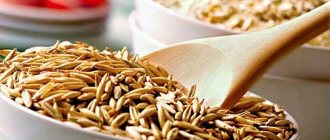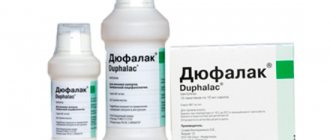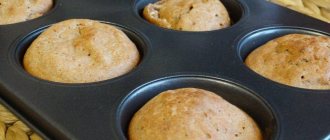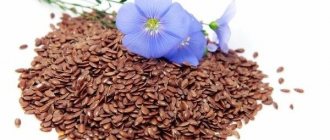The digestive system is a collection of glands and organs that provide the nutrients the body needs for full functioning. Stress, poor-quality products, unfavorable environment, medications and other factors provoke the occurrence or exacerbation of gastrointestinal diseases. Diseases of the digestive system are so common that every person encounters their manifestations at least once.
To prevent such a situation, traditional medicine advises using oats for the stomach for therapeutic and preventive purposes. In the article we will discuss the beneficial properties of oats, contraindications and side effects, treatment of the gastrointestinal tract with oats, and features of its use.
Oats for gastritis
One of the most important components of the treatment of diseases of the gastrointestinal tract is a properly formulated diet. Some familiar dishes and products will have to be categorically excluded, some should be consumed in extremely limited quantities.
But there are food products that are not only included in the diet, but also used to treat the underlying disease. Let's figure out whether oats will be useful for gastritis and how to properly use this well-known cereal.
The benefits of oats for gastritis are widely known; this dish perfectly saturates and supplies the body with vitamins and microelements necessary for the body. This cereal is widely used not only in cooking, but also in folk medicine. The main medicinal properties of the plant:
- stops inflammatory processes;
- the functions of the cardiovascular and nervous systems are normalized;
- metabolic processes are restored;
- immunity increases;
- strengthens blood vessels, helping to improve blood circulation;
- fights diseases of the kidneys and urinary system.
Despite the benefits of oats for the digestive system, sometimes its effect is not enough to get rid of the disease. Therefore, it is often used as an addition to drug therapy or as a prophylactic agent to prevent relapses and complications.
In what cases should it not be used?
Despite the fact that the cereal is beneficial for the body, there are a number of contraindications when oats should not be used to treat the stomach:
- renal and liver failure;
- formation of large stones in parts of the urinary system;
- increased stomach acidity;
- allergy to the product;
- cardiac and vascular diseases in the acute stage;
- abdominal pain of unknown origin;
- period of pregnancy and lactation;
- celiac disease (gluten intolerance)
Oats for gastritis of the stomach
Oatmeal broth is beneficial for the whole body, but has a particularly beneficial effect on the digestive organs, liver and kidneys. It acts as an enterosorbent, which removes toxic substances from the intestines, increases the functional activity of the gastrointestinal tract, and removes excess fluid.
Other benefits of oatmeal for the stomach:
- stimulates mucosal regeneration processes;
- removes necrotic tissue from ulcerative defects on the mucous membranes;
- prevents the occurrence of toxic and allergic reactions;
- improves blood supply to the intestines;
- normalizes metabolism;
- regulates acid-base balance in the blood;
- prevents water and electrolyte losses;
- inhibits inflammation;
- eliminates dysbacteriosis;
- increases peristalsis of the large intestine;
- relieves painful cramps in the stomach;
- reduces gas accumulation;
- restores the body's humoral regulation systems;
- protects mucous membranes from the aggressive action of irritating substances.
Is it possible to eat oats for gastritis?
It is recommended to use oats for gastritis as an anti-inflammatory, analgesic, antispasmodic and regenerating agent to protect the epithelium from damaging influences. The grain also contains ascorbic and nicotinic acids, pyridoxine, which stimulate the production of gastric juice, and vitamin E replenishes the deficiency of natural protective factors.
Oats are often used in the treatment of gastritis because this cereal:
- includes a large number of useful substances (vitamins, amino acids, minerals) that are necessary for the digestion process;
- vegetable oat proteins help restore and strengthen the mucous membranes lining the digestive organs from the inside;
- the product removes toxins and excess fluid well;
- helps eliminate constipation;
- helps strengthen the body's defenses, which is very important in the treatment of infectious and stress gastritis;
- normalizes the pH level of gastric juice, which is very important for gastritis with high acidity. The use of oats allows you to avoid the transition of gastritis to a more severe stage - peptic ulcer.
Chemical composition
Oats are an annual herbaceous plant. Culture can be food or fodder. Despite the fact that the genus of oats has about 20 varieties, the most popular are considered to be ordinary and fodder. Unprocessed grains are used to prepare decoctions. Whole grains, which are steamed and polished, are used for stuffing vegetables and pilaf.
Nutritional value of 100 g of product:
- carbohydrates - 60 g;
- proteins - 12 g;
- fat - 6 g.
Did you know? Oatmeal cookies were invented in Scotland in the 17th century. In those days, oats were considered the most popular cereal, relegating wheat and barley to the background.
The carbohydrate complex consists of the following substances:
- starch;
- sucrose;
- fructose;
- lactose;
- maltose;
- dietary fiber.
- Also, the chemical composition of the cereal in question is rich in useful elements:
- vitamin A , which is presented in the form of alpha-carotene, retinol and lycopene;
- B vitamins : choline, folate, thiamine, pantothenic acid, riboflavin;
- nicotinic acid;
- vitamin E;
- trace elements: copper, zinc, selenium, manganese, iodine, boron and iron;
- macroelements: sodium, silicon, calcium, magnesium, potassium and chlorine.
Oats for gastritis with high acidity
Nutritionists often recommend oatmeal decoction and jelly to patients, since this cereal helps reduce pain in a person with acute inflammation of the gastric mucosa.
Nutritionists often recommend oatmeal decoction and jelly to patients, since this cereal helps reduce pain in a person with acute inflammation of the gastric mucosa.
Oat dishes create a dense, enveloping film, which accelerates the healing process of small erosions. The product does an excellent job of removing toxins and excess fluid. It enriches the body with useful substances necessary to normalize digestion. Moreover, oat proteins improve the condition of the internal linings of the gastrointestinal tract.
Gastritis with high acidity is accompanied by severe irritation of the stomach walls, as a result of which a person suffers from nausea, vomiting, and pain. Hyperacid gastritis is more demanding on the diet; food should be gentle and soft. Kissel, broth, soup and oat porridge fully meet these requirements.
For this type of gastritis, oats should be consumed daily in the form of well-boiled porridges in water or decoctions. In such a state, it is strictly forbidden to add butter, berries, honey, sugar and salt to the porridge, as they can cause another attack of nausea and pain.
If porridge is poorly tolerated, oats can be used in the form of light milk jelly. It will reduce irritation in the stomach. Drink jelly warm, in small portions.
To make oatmeal the desired consistency, you should take 200 g of grains per 1 liter of water. It is best to pour boiling water over the product, then cover with a lid.
For acute gastritis, oat porridge should be cooked strictly in water without other additives. After the symptoms subside, you can add milk and a little butter to your dishes.
The benefits of oatmeal jelly
oatmeal jelly can be not only healthy, but also tasty
The amazing properties of the drink are due to the fact that it contains a unique combination of fats, proteins, and carbohydrates necessary for normal life.
Positive effects on the body:
- Improves the microflora of the gastrointestinal tract.
- Increases hemoglobin levels.
- Cleanses the body of waste and toxins.
- Improves the condition of tooth enamel.
- Positively affects the elasticity of blood vessels.
- Normalizes hormonal levels.
- Promotes weight loss.
- Strengthens the skeletal system.
- Improves brain activity.
- Helps with anemia.
- Fights stress and depression.
- Increases immunity.
- Relieves allergies.
The benefits and healing effects of oatmeal jelly on humans are associated with its rich chemical composition.
It contains:
- iron;
- potassium;
- fluorine;
- magnesium;
- cellulose;
- probiotics;
- amino acids;
- vitamins A, E, B, F.
Oatmeal jelly is a good prophylactic for preventing cataracts and arthritis.
After lengthy research, experts noted another valuable property of the product: it prevents the occurrence of cancer.
The potassium and magnesium it contains help fight swelling. The high starch content makes the drink useful in treating:
- pancreatitis;
- gastritis;
- ulcers;
- cirrhosis;
- hypertension;
- dysbacteriosis.
It is best to consume oatmeal jelly in the morning. They can complement breakfast. To achieve the weight loss effect, replace your entire meal with it.
Oats for gastritis and pancreatitis
https://youtu.be/oSsgink0d4g
Oat decoction is actively used in folk medicine to treat various pathologies of the digestive organs, including pancreatitis. The composition contains a lot of phytic acid. When it enters the stomach, this component enters the bloodstream and removes toxins from the body.
The drink also contains many nutrients. This remedy is perfect for people who are temporarily prohibited from eating. This is most often observed during an exacerbation. One glass of the product contains 790 kcal. They allow you to mitigate fasting and avoid loss of strength. When using oats for medicinal purposes, it is important to observe moderation. Otherwise, there is a risk of overdose and intoxication of the body.
You need to drink oat decoction 3 times a day - at 7 o'clock in the morning, at 1 o'clock in the afternoon and at 9 o'clock in the evening. It is at these moments that metabolic processes accelerate. You should not take more than 1 liter of product per day.
General strengthening decoction
If there is no rejection of dairy products with gastritis, then we will tell you how to cook a tonic decoction. To do this, oat seeds need to be washed well, then dried and crushed in a blender. Pour half a glass of seeds into 200 ml of boiling water and place in a steam bath. When a creamy consistency is formed, add one glass of milk and boil. Cool, strain, add 3 tbsp. l. honey Take the heated decoction two to three times a day before meals. Treatment can last from three to seven days.
Oats for gastritis recipes
The main medicinal dish for gastritis is oat decoction.
Decoction
Oat decoction for gastritis is the main medicine used to treat gastritis. This preparation retains the maximum amount of beneficial substances. Here is a recipe for making a decoction. It is necessary to prepare decoctions not from flakes, but from whole oat grains. Procedure:
- we wash the grains and let them dry;
- grind the grains into flour using a blender or coffee grinder;
- Stir half a glass of the resulting flour in half a liter of water;
- put the mixture on the stove, bring to a boil;
- reduce heat to low and cook for 30 minutes;
- let the broth cool under the lid;
- filter.
The finished broth is slimy, similar to jelly. It needs to be diluted with cold boiled water to half a liter. The resulting liquid is divided into three doses and drunk per day. You need to drink the decoction before meals, the course of administration is six months.
Infusion
The oat infusion should be prepared from whole grains; there is no need to grind them.
The oat infusion should be prepared from whole grains; there is no need to grind them. For a glass of boiling water you need to take 0.25 cups of grains. Since the infusion takes a long time to prepare, you can immediately prepare 1 liter of infusion for two days of use. Procedure:
- Wash and dry 1 cup of grains;
- pour a liter of boiling water and let it brew for 12 hours;
- boil water in a large saucepan, place the container with the infusion in the boiling water and simmer in a water bath for half an hour;
- cool the infusion and let it brew for half a day;
- drain the liquid through a sieve;
- add water to a volume of 1 liter;
- Divide the prepared infusion into 6 servings and drink within two days. The infusion should be stored in the refrigerator.
Advice! Under no circumstances should you drink an infusion that you have just taken out of the refrigerator. You need to heat the prepared portion to a temperature of 36-37 degrees.
As numerous reviews indicate, oats really help against gastritis, and side effects with this procedure rarely occur. It is only important to follow the dosage and take into account contraindications.
Kissel
Oatmeal jelly also has healing properties. It is prepared like this:
- The grains are washed, dried and poured with boiling water. For 500 gr. cereals you need to take three liters of water;
- leave the mixture to infuse for 12 hours;
- drain the liquid through a sieve;
- the swollen oats are washed with the drained infusion, actively stirring and pressing with a spoon to remove as much healing mucus as possible;
- Place the liquid on the fire and cook over low heat until thickened. The jelly should not be allowed to boil, so it is best to cook it in a water bath;
- You need to take the drink half a glass three times a day.
Transform the broth into jelly
If you add a little starch to the mixture from the previous recipe and cook longer, you will get a thicker, slimier jelly. It will also be very useful for inflammation of the stomach.
Recipe for preparing oat decoction
To get rid of this disease, you need to contact a qualified specialist who will select a personal diet for you and advise you on what decoction to take. Note that oats are very useful for any type of gastritis, including reflux.
There are many recipes for making drinks from oats. We recommend making oat tea from Hippocrates.
Tea recipe: Unhulled oats must be ground in a coffee grinder until it becomes flour. Then pour oat powder into a thermos and pour in boiled water in the proportion of 1 tbsp. l. oats for 1 cup of boiling water. It is advisable to brew it overnight to allow the tea to infuse. The next day drink as tea.
Oats for gastritis contraindications
For people with kidney failure, cholelithiasis, removed gallbladder and personal tolerance, taking oat decoction is contraindicated.
It can be taken even during pregnancy. However, for people with renal failure, cholelithiasis, removed gallbladder and personal tolerance, taking this decoction is contraindicated. You must also adhere to the dosage for cholecystitis and liver pathology. In any case, it is recommended to consult a gastroenterologist before use.









